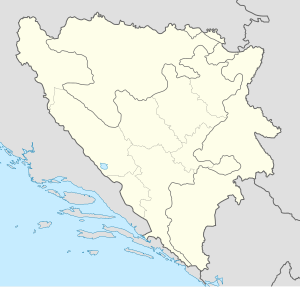
Back Operacija "Koridor" BS Operación Corredor Spanish Opération Corridor French Operacija Koridor Croatian Korridor '92 hadművelet Hungarian Операция «Коридор» Russian Operacija Koridor Serbo-Croatian Операција Коридор 92 Serbian Операція «Коридор 92» Ukrainian
| Operation Corridor 92 | |||||||||
|---|---|---|---|---|---|---|---|---|---|
| Part of the Bosnian War | |||||||||
The objectives of Operation Corridor 92 on the map of Bosnia and Herzegovina | |||||||||
| |||||||||
| Belligerents | |||||||||
|
|
| ||||||||
| Commanders and leaders | |||||||||
|
|
| ||||||||
| Units involved | |||||||||
|
| ||||||||
| Strength | |||||||||
|
40,800 soldiers (June) 54,660 soldiers (October) |
20,000 soldiers (June) 5,000 soldiers (October) | ||||||||
| Casualties and losses | |||||||||
|
413 killed 1,509 wounded |
1,261 killed 6,250 wounded | ||||||||
| 116 civilians killed in Slavonski Brod, Croatia | |||||||||
Operation Corridor 92 (Serbo-Croatian: Операција Коридор 92, Operacija Koridor 92) was the largest operation conducted during the Bosnian War by the Army of Republika Srpska (VRS) against the forces of the Croatian Defence Council (HVO) and the Croatian Army (HV) in the Bosanska Posavina region of northern Bosnia and Herzegovina between 24 June and 6 October 1992. The objective of the offensive was to re-establish a road link between the city of Banja Luka in the west of the country and the eastern parts of the territory controlled by the Bosnian Serbs. The offensive was prompted by the capture of Derventa by the HV and the HVO – a move that blocked the single overland road between the VRS-controlled territories.
The VRS successfully captured Derventa and pushed the HVO and the HV north, capturing several towns in the process. In the second phase of the offensive, the VRS reached the Sava River, the border with Croatia, and destroyed a bridgehead held by the HV and the HVO at Bosanski Brod. The offensive involved more than 60,000 troops and resulted in heavy casualties for all sides, especially the HVO. The Croatian National Defence Council commissioned a report into the loss of Bosanska Posavina and blamed internal conflicts, a double chain of command and ineffective counterintelligence for the defeat. The outcome later caused speculation that it was the result of a political arrangement between Serb and Croatian leaders to secure a land trade, though a Central Intelligence Agency analysis rejected such allegations.
© MMXXIII Rich X Search. We shall prevail. All rights reserved. Rich X Search
